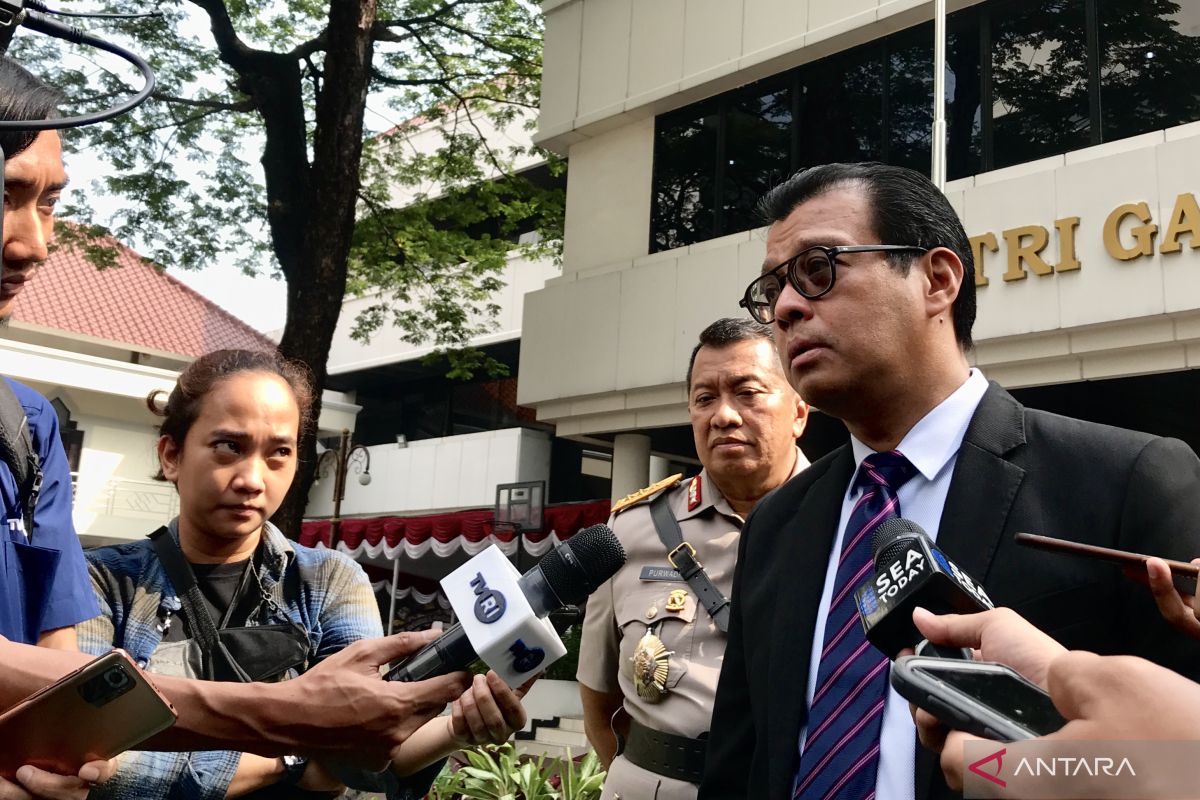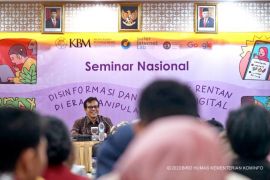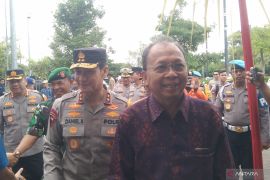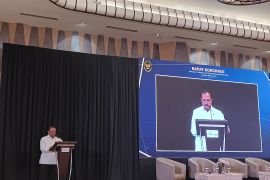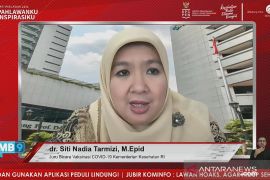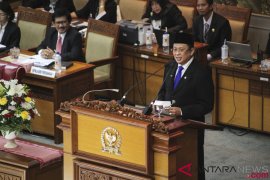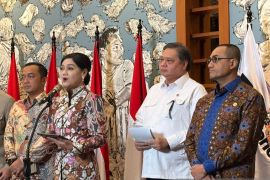Lemhannas Governor Andi Widjajanto said that the advancements in artificial intelligence (AI) technology have made it possible to manipulate images, videos, and sounds, and these must be countered using artificial technology, too.
“The government must be able to formulate regulations or even technology to counter the result of AI (manipulation)," he added.
He cited a photo that went viral around two weeks ago (on May 10, 2023) on various platforms, which showed an explosion at the Pentagon in the United States.
"After it was studied, the one which recognized that the image was made by AI was (also) AI. AI knew that it (the photo) was unnatural," he elaborated.
The Pentagon immediately issued a clarification, stating that the image was a deepfake. However, the damage had been done, with some US stocks impacted by the fake news.
President Joko Widodo has directed Lemhannas to study further about democracy in the digital era and create strategies to maintain democracy in the current times, Widjajanto disclosed.
“It's a directive from President Joko Widodo when I was sworn in office on February 21, 2022: to study digital transformation. Study about digital transformation architecture, ranging from doctrines, policies, programs, budgets, human resources, to tech adoption, we have finished it, and we have handed it to the President," he informed.
He said that the key to combating hoaxes and manipulations in cyberspace is improving the national digital civilization.
Since 2016, Microsoft, a technology corporation from Washington, the US, has been researching the digital civility rate in some countries and documenting it in the Digital Civility Index.
Indonesia has been among the countries researched by Microsoft. The others have included Argentina, Belgium, Brazil, Canada, Chile, Colombia, France, Germany, Hungary, India, Ireland, Italy, Malaysia, Mexico, and the Netherlands.
In the fifth year of its research, Microsoft added seven more countries to its roster—Australia, Denmark, the Philippines, Spain, Sweden, Taiwan, and Thailand.
In Microsoft's 2020 DCI research, which was released in 2021, Indonesia ranked 29th with a DCI of 79. Other Southeast Asian countries ranked better compared to Indonesia—Singapore (4), Malaysia (10), the Philippines (13), Thailand (19), and Vietnam (24).
The indicators for gauging the Digital Civility Index include bullying in cyberspace, online sexual harassment and violence, discriminative comments, and the spread of hate speech, hoaxes, and fraud.
On a different occasion, Widjajanto said that structural transformation to improve Indonesia's digital civility index is a long-term program.
"This is not a short-term program for sure because it is related to the maturity of our democracy," he added.
Related news: Govt to prevent information disruption ahead of election: Lemhannas
Related news: Lemhannas outlines results of study on Papua
Related news: Lemhannas recommends tin as national strategic commodity
Translator: Genta Tenri M, Mecca Yumna
Editor: Azis Kurmala
Copyright © ANTARA 2023
